Yes, a Jeep Grand Cherokee is capable of pulling a camper due to its strong towing capacity. With its powerful engine and sturdy build, the Jeep Grand Cherokee can handle the weight and demands of towing a camper without compromising performance or safety.
Whether you have a small camping trailer or a larger RV, the Jeep Grand Cherokee is a reliable choice for towing your camper and enjoying a memorable road trip or camping experience.
Its towing ability allows you to explore various destinations and enjoy the comfort and convenience of bringing your own accommodation along with you.
Understanding The Towing Capacity Of Jeep Grand Cherokee
The towing capacity of the Jeep Grand Cherokee allows it to easily pull a camper, making it a reliable option for adventurers seeking to hit the road with all their gear. With its powerful engine and sturdy build, the Grand Cherokee proves to be an ideal vehicle for towing.
Understanding the Towing Capacity of Jeep Grand Cherokee When it comes to towing a camper with your Jeep Grand Cherokee, understanding the towing capacity is crucial to ensure a safe and efficient trip.
The towing capacity of your vehicle determines how much weight it can pull behind it, and it varies depending on different factors. In this article, we will explore the towing capacity of Jeep Grand Cherokee models and discuss the essential factors to consider when determining towing capacity.
Exploring The Towing Capacity Of Jeep Grand Cherokee Models
The Jeep Grand Cherokee is a powerful SUV that is known for its towing capabilities. However, it’s important to note that the towing capacity varies among different models. As a general rule, the towing capacity of the Jeep Grand Cherokee ranges from 3,500 to 7,200 pounds, depending on the engine, transmission, and other factors.
Let’s dive deeper into the factors that can affect the towing capacity of your Jeep Grand Cherokee.
Factors To Consider When Determining Towing Capacity
Several factors come into play when determining the towing capacity of your Jeep Grand Cherokee. These factors include:
Engine Power And Performance
The engine is a critical component when it comes to towing capacity. A more powerful engine with higher horsepower and torque can handle heavier loads. It is recommended to opt for a Jeep Grand Cherokee model with a V8 engine for enhanced towing capabilities.
Transmission And Axle Ratio
The transmission and axle ratio also play a significant role in determining towing capacity. A vehicle with a higher axle ratio and a tow/haul mode in the transmission can handle higher towing weights more efficiently.
Braking System And Suspension
A robust braking system is essential for a safe towing experience. Make sure your Jeep Grand Cherokee has a reliable braking system, including features like anti-lock brakes and trailer sway control. The suspension of your vehicle should also be able to handle the additional weight to ensure stability during towing.
How To Calculate The Towing Capacity Of A Jeep Grand Cherokee
Understanding how to calculate the towing capacity of your Jeep Grand Cherokee is crucial to ensure you’re within safe limits. Here are the key steps to follow:
Understanding Gross Vehicle Weight Rating (gvwr) And Curb Weight
To determine your Jeep Grand Cherokee’s towing capacity, you need to know its Gross Vehicle Weight Rating (GVWR) and curb weight. The GVWR is the maximum weight your vehicle can safely carry, including passengers, cargo, and fuel. The curb weight refers to the weight of the vehicle without any additional cargo or passengers.
Considering Payload And Hitch Weight
When calculating the towing capacity, you need to consider the payload capacity and hitch weight. The payload capacity refers to the maximum weight that can be carried in the vehicle, including passengers and cargo. The hitch weight is the downward force exerted on the hitch by the trailer.
Checking The Gross Combined Weight Rating (gcwr)
You also need to consider the Gross Combined Weight Rating (GCWR) of your Jeep Grand Cherokee. The GCWR is the maximum weight allowed for your vehicle when both the vehicle and trailer are combined. It includes the total weight of the vehicle, passengers, cargo, trailer, and any additional equipment.
Comparing Towing Capacities Of Different Jeep Grand Cherokee Models
To make an informed decision, it’s essential to compare the towing capacities of different Jeep Grand Cherokee models. This way, you can choose a model that meets your specific towing needs. Refer to the manufacturer’s specifications or consult with a reputable dealer to determine the right model for you.
In summary, understanding the towing capacity of your Jeep Grand Cherokee is crucial for a successful and safe towing experience. Take into account factors such as engine power, transmission, braking system, and suspension when determining towing capacity.
Calculate the towing capacity using the GVWR, curb weight, payload, hitch weight, and GCWR. By considering these factors and comparing different Jeep Grand Cherokee models, you can confidently embark on your next camping adventure with your camper in tow.
Choosing The Right Camper For Your Jeep Grand Cherokee
When it comes to planning a camping trip with your Jeep Grand Cherokee, choosing the right camper is essential to ensure a safe and enjoyable towing experience. With various types of campers available in the market, understanding and selecting the one that suits your Jeep Grand Cherokee’s towing capacity is crucial.
In this blog post, we will explore the different types of campers and provide you with valuable tips to consider when making your choice.
Understanding The Different Types Of Campers
There are several types of campers to choose from, each offering its own unique features and benefits. Here are some of the popular options:
Pop-up Campers
Pop-up campers, also known as tent trailers, are lightweight and easy to tow. They offer the convenience of a spacious living area combined with the flexibility of a compact and foldable design. Pop-up campers are a great choice for those looking for a comfortable camping experience without compromising on mobility.
Travel Trailers
Travel trailers are a popular choice among camping enthusiasts due to their versatility and range of options. These trailers come in different sizes, floor plans, and amenities, allowing you to customize your camping experience based on your preferences. Travel trailers are known for their comfortable interiors and ample storage space, making them suitable for longer trips.
Fifth Wheel Trailers
Fifth wheel trailers are larger and provide more living space compared to other camper types. They require a specialized hitch installed in the bed of your Jeep Grand Cherokee, which increases stability during towing. These trailers are a great option if you desire a luxurious camping experience with more amenities and a spacious interior.
Expandable Trailers
If you’re looking for a compact towing option with additional sleeping space, expandable trailers might be the right choice for you. These trailers feature fold-out beds or expandable sections, maximizing living space when parked while being easy to tow on the road.
Matching The Camper Weight With Jeep Grand Cherokee’s Towing Capacity
One of the critical factors to consider when choosing a camper for your Jeep Grand Cherokee is ensuring it is within the vehicle’s towing capacity. Refer to your Jeep Grand Cherokee’s owner manual or consult with the manufacturer to determine the maximum weight your vehicle can tow safely. It’s essential to match the weight of the camper, including its contents, with the towing capacity of your Jeep Grand Cherokee to ensure a stable and secure towing experience.
Evaluating The Length And Width Of The Camper
In addition to weight, evaluating the length and width of the camper is crucial to ensure optimal maneuverability and fit. Consider the dimensions of your Jeep Grand Cherokee and its capabilities to navigate various terrains and parking spaces. Choosing a camper that fits within these parameters will make towing and parking more manageable.
Considering The Additional Payload And Storage Space
While assessing the weight capacity of your Jeep Grand Cherokee, it’s essential to consider the additional payload you’ll be carrying in the camper. Personal belongings, camping gear, and water tanks all contribute to the overall weight. It’s crucial to ensure your Jeep Grand Cherokee can accommodate the additional payload without exceeding its weight limits. Moreover, considering the available storage space in the camper is essential to ensure you can bring all the necessary items comfortably.
Tips For Ensuring A Safe And Stable Towing Experience
To ensure a safe and stable towing experience with your Jeep Grand Cherokee, follow these tips:
- Regularly check and maintain your Jeep Grand Cherokee’s towing equipment, including the hitch, trailer brakes, lights, and tires.
- Distribute the weight evenly within the camper to maintain stability during towing.
- Take into account the wind and weather conditions when towing a camper, as it can affect handling and fuel efficiency.
- Practice towing in a controlled environment before embarking on a long trip to familiarize yourself with the handling characteristics of your Jeep Grand Cherokee and the camper.
By choosing the right camper for your Jeep Grand Cherokee and adhering to these safety tips, you can embark on memorable camping adventures with peace of mind.
Essential Equipment And Accessories For Towing A Camper With Jeep Grand Cherokee
Towing a camper with your Jeep Grand Cherokee can be an exciting adventure, but it’s important to have the right equipment and accessories to ensure a safe and smooth towing experience. From selecting the right trailer hitch to installing trailer brake controllers, here are some essential items to consider before hitting the road.
Selecting The Right Trailer Hitch
When it comes to towing a camper, the right trailer hitch is crucial for safely connecting your Jeep Grand Cherokee to the camper. There are various classes of trailer hitches available, each with different weight capacities:
Class I Hitch
A Class I hitch is suitable for towing smaller campers and trailers. It typically has a weight capacity of up to 2,000 pounds, making it ideal for lightweight and compact trailers.
Class II Hitch
A Class II hitch offers a higher weight capacity, usually ranging from 3,500 to 4,000 pounds. This type of hitch can handle larger campers or trailers, providing a higher towing capacity than Class I hitches.
Class III Hitch
A Class III hitch is designed for towing medium-sized campers and trailers. With a weight capacity of around 5,000 to 6,000 pounds, it offers greater towing capabilities and versatility for various camping needs.
Class IV Hitch
If you have a larger camper or trailer, a Class IV hitch is the way to go. With a towing capacity ranging from 7,500 to 10,000 pounds, this heavy-duty hitch can handle heavy loads and is suitable for extended camping trips.
Understanding Weight Distribution Hitches
In addition to selecting the right trailer hitch, using a weight distribution hitch can greatly improve towing stability and control. A weight distribution hitch helps distribute the weight of the trailer evenly across the towing vehicle, reducing sway and improving overall towing performance.
Installing Trailer Brake Controllers
To ensure safe towing, it is essential to have trailer brake controllers installed in your Jeep Grand Cherokee. These controllers activate the brakes on the camper when you apply the brakes in your vehicle. This helps prevent excessive strain on the vehicle’s brakes and ensures smoother and safer stops.
Tires And Suspension Upgrades For Improved Towing Performance
Proper tires and suspension upgrades are necessary for optimal towing performance. Upgrading to high-quality, load-rated tires designed for towing can provide better traction, stability, and durability, ensuring your Jeep Grand Cherokee can handle the weight of the camper. Additionally, considering suspension upgrades, such as heavy-duty shocks or stabilizer bars, can further enhance the towing experience by minimizing sway and improving handling.
Additional Accessories For Convenience And Safety
In addition to the essential equipment mentioned above, there are several accessories that can enhance convenience and safety when towing a camper with your Jeep Grand Cherokee. These include:
- Trailer sway control systems to minimize trailer sway and improve towing stability.
- A trailer hitch lock to secure the hitch and prevent theft.
- Towing mirrors to expand your field of vision and improve visibility when towing.
- A trailer hitch coupler lock to protect against unauthorized uncoupling.
- A breakaway switch to activate the trailer brakes if it becomes disconnected from the tow vehicle.
Remember, having the right equipment, such as the appropriate trailer hitch, weight distribution hitch, brake controllers, tires, and suspension upgrades, along with additional accessories, can make all the difference in ensuring a safe and enjoyable camping trip with your Jeep Grand Cherokee and camper. So, prepare yourself for the adventure ahead and hit the road with confidence!
Preparing Your Jeep Grand Cherokee For Towing A Camper
Taking your Jeep Grand Cherokee on a camping adventure with a camper in tow can be an exciting experience. However, before you hit the road, it’s crucial to ensure that your vehicle is properly prepared for towing. From vehicle maintenance and servicing to checking the condition of towing components, there are a few key steps you need to take to ensure a safe and enjoyable trip. In this article, we’ll guide you through the process of getting your Jeep Grand Cherokee ready for towing a camper.
Ensuring Proper Vehicle Maintenance And Servicing
Before embarking on your camping trip, it’s essential to ensure that your Jeep Grand Cherokee is in excellent condition. Regular vehicle maintenance and servicing play a vital role in keeping your vehicle running smoothly and safely on the road. Here are a few maintenance tasks to consider:
- Check the engine oil level and change it if necessary. Ensure that the oil used meets the manufacturer’s recommended specifications.
- Inspect the radiator coolant level and top it up if needed. It’s crucial to prevent any overheating issues, especially when towing a camper.
- Inspect the brake pads and rotors, and replace them if worn out. Proper braking is essential for maintaining control while towing.
- Check the transmission fluid level and condition. If the fluid is dirty or low, have it changed or topped up.
- Ensure that all lights and indicators are working correctly, including the brake lights and turn signals.
Checking The Condition Of The Towing Components
When it comes to towing a camper, the condition of your towing components is of utmost importance. Examine the following aspects:
- Inspect the trailer hitch receiver and ensure it is securely attached to your Jeep Grand Cherokee. If any rust or damage is present, resolve it promptly.
- Check the towing wiring harness for any signs of wear or damage. Ensure that all connections are secure and working correctly.
- Test the trailer brake controller (if equipped) to ensure it is functioning correctly. Proper trailer braking is crucial for safe towing.
- Inspect the safety chains and ensure they are in good condition and properly attached to the tow vehicle and camper.
Adjusting Tire Pressure For Optimal Performance
Proper tire pressure is vital for safe towing and optimal performance. Before setting off on your trip, make sure to:
- Refer to the tire pressure recommendations specific to your Jeep Grand Cherokee and the weight of the loaded camper.
- Using a reliable tire pressure gauge, check the tire pressure of all four tires, including the spare.
- Adjust the tire pressure according to the recommended specifications. This will ensure that your tires provide maximum grip, handling, and stability while towing.
Loading The Camper Properly For Balanced Weight Distribution
When packing your camper, it’s essential to distribute the weight properly to maintain balance and stability while towing. Consider the following tips:
- Place heavier items low and towards the front of the camper to help with weight distribution.
- Avoid overloading the rear of the camper, as it can cause instability and affect steering control.
- Secure all items inside the camper using straps or bungee cords to prevent shifting during transit.
Conducting A Thorough Safety Inspection Before Hitting The Road
Prior to setting off on your camping trip, be sure to conduct a comprehensive safety inspection to ensure everything is in proper working order. Pay attention to the following:
- Check the camper’s tire pressure, lug nut torque, and overall condition.
- Inspect the camper’s brakes, including both electric and hydraulic systems.
- Ensure that all trailer lights and indicators are functioning correctly.
- Test the brake controller, trailer brakes, and emergency breakaway system (if applicable).
- Verify that the trailer jack and coupler are in good condition.
- Double-check that safety chains are correctly attached.
By following these preparation steps and conducting a thorough inspection, you can ensure a safe and worry-free towing experience with your Jeep Grand Cherokee and camper. Remember, prioritizing proper maintenance, checking towing components, adjusting tire pressure, and loading the camper correctly are key to enjoying a successful camping trip!
Tips And Best Practices For Towing A Camper With Jeep Grand Cherokee
Towing a camper with your Jeep Grand Cherokee can be an exciting adventure, but it’s important to ensure that you do it safely and legally. Understanding the legal requirements, safety regulations, and best practices for towing will help you have a successful and worry-free journey. In this article, we will explore some essential tips to help you enjoy your camping trips with peace of mind.
Understanding The Legal Requirements For Towing A Camper
Before you hit the road, it’s crucial to understand the legal requirements for towing a camper with your Jeep Grand Cherokee. Each state may have its own set of regulations regarding towing capacity, registration, and licensing. Be sure to check the towing laws and requirements in your state to avoid any legal issues during your journey.
Insurance And Registration
Ensure your Jeep Grand Cherokee and camper are properly insured and registered. Contact your insurance provider to add coverage for towing and verify that your policy adequately protects your camper. Additionally, make sure both your vehicles have valid registration and license plates.
Safety Regulations And Restrictions
When towing a camper, it’s crucial to adhere to safety regulations and restrictions. Familiarize yourself with the weight limits, tire pressure, and hitch requirements for your Jeep Grand Cherokee. It’s essential to stay within the manufacturer’s specified guidelines and use the appropriate towing equipment for a secure connection.
Practicing Safe Towing Techniques
Towing a camper safely requires mastering some essential techniques. Here are a few tips to keep in mind:
- Accelerating and Braking Safely: Gradually accelerate and decelerate to avoid jerky movements that can cause instability.
- Maintaining a Safe Speed and Distance: Drive at a safe and consistent speed, leaving enough distance between your vehicle and the one in front of you to allow for proper braking.
- Handling Crosswinds and Swaying: Be prepared to counteract crosswinds by steering in the opposite direction and adjust your speed accordingly.
- Planning Ahead for Roads and Terrain: Research the roads and terrain you will encounter to anticipate any challenges such as steep inclines, sharp curves, or narrow roads.
Understanding Weight Restrictions On Bridges And Tunnels
When planning your route, consider weight restrictions on bridges and tunnels. Exceeding weight limits can result in fines and, in some cases, can even cause damage to the infrastructure. Look for alternative routes if necessary, and avoid putting unnecessary stress on your Jeep Grand Cherokee and your camper.
Navigating Uphill And Downhill Terrains
Uphill starts and steep descents can be challenging when towing a camper. Familiarize yourself with the capabilities of your Jeep Grand Cherokee and practice safe techniques. Use lower gears for better control, avoid sudden braking, and monitor your vehicle’s temperature gauge to prevent overheating.
Parking And Maneuvering In Tight Spaces
Parking and maneuvering with a camper require extra care and attention. Take your time and use a spotter if needed. Be mindful of your camper’s height and always check for overhead obstructions before attempting to park or navigate tight spaces.
Overcoming Common Challenges While Towing A Camper
During your journeys, you may encounter some common challenges when towing a camper. Here are a few tips to help you overcome them:
- Dealing with Trailer Sway: Trailer sway can be unsettling, but it can be minimized by properly loading your camper, distributing weight evenly, and using anti-sway devices.
- Managing Fuel Consumption: Towing a camper may increase fuel consumption. Keep an eye on your fuel levels, plan for refueling stops, and adjust your driving style to maximize fuel efficiency.
- Handling Uphill Starts and Steep Descents: As mentioned earlier, be mindful of your speed, gear selection, and brake usage when dealing with uphill starts and steep descents to maintain control and avoid strain on your vehicle.
By following these tips and best practices, you can confidently tow a camper with your Jeep Grand Cherokee and enjoy memorable camping adventures. Remember, safety should always be your top priority when hitting the road with a camper in tow.
Frequently Asked Questions On Can A Jeep Grand Cherokee Pull A Camper
How Big Of A Trailer Can I Tow With A Jeep Grand Cherokee?
The maximum trailer size a Jeep Grand Cherokee can tow depends on the specific model and engine. It ranges from 3,500 to 7,200 pounds. Check your vehicle’s towing capacity in the owner’s manual or consult the manufacturer for exact details.
Can I Tow A Travel Trailer With A Jeep Grand Cherokee?
Yes, you can tow a travel trailer with a Jeep Grand Cherokee. Ensure you adhere to the vehicle’s towing capacity and use proper towing equipment for safety.
Can A Jeep Grand Cherokee Tow 7000 Lbs?
Yes, the Jeep Grand Cherokee is capable of towing up to 7000 lbs.
Can A Jeep Grand Cherokee Pull An Airstream?
Yes, a Jeep Grand Cherokee can pull an Airstream. It has a high towing capacity, making it suitable for towing an Airstream trailer.
Conclusion
The Jeep Grand Cherokee is a formidable vehicle that is more than capable of pulling a camper. With its impressive towing capacity and powerful engine options, it provides a smooth and reliable towing experience. So whether you’re planning a weekend getaway or a long road trip, rest assured that the Grand Cherokee has got you covered.
Experience the thrill of adventure and the freedom of the open road with this versatile SUV.
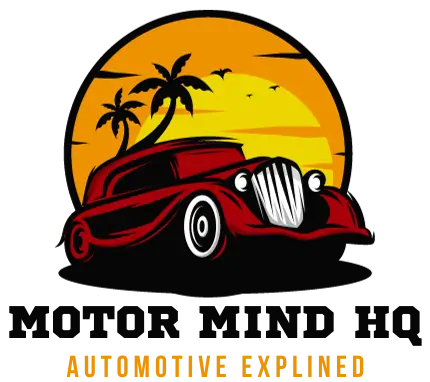
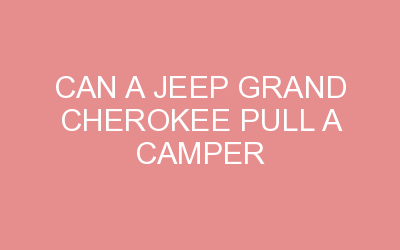
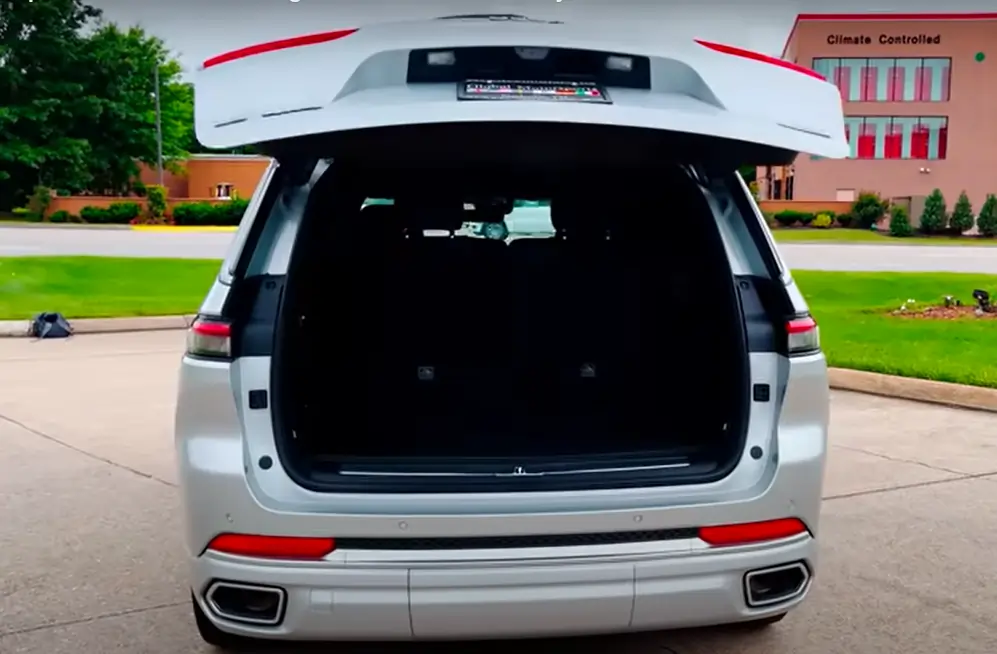
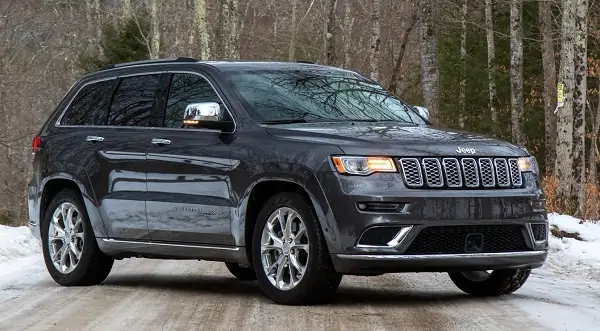




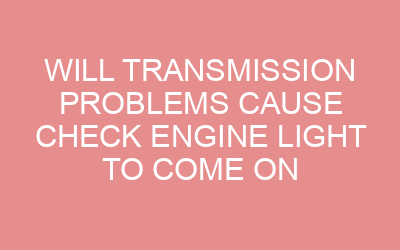
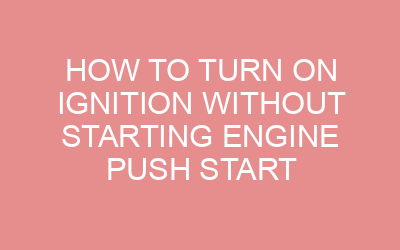

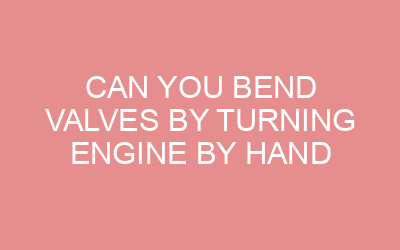

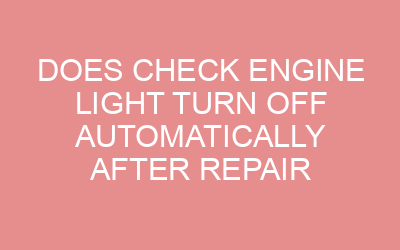
Leave a Reply